Small Systems
Small public water systems are essential to protecting public health. These systems can often be vulnerable to climate change impacts, limited financial resources, and regulatory compliance obstacles. AWWA aims to provide a variety of resources to ensure small systems — the backbone of North American water systems — have the support needed to thrive.

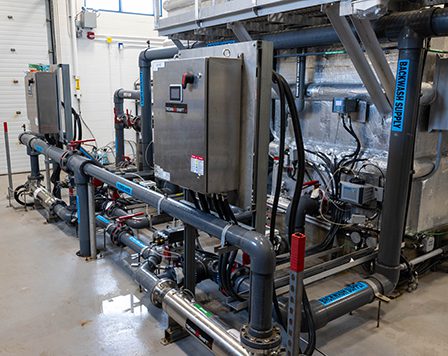
Resources for Small Systems
Small water systems (serving less than 10,000 customers) play a large role in the water industry. In the U.S., small systems comprise more than 92% of the nation’s 51,000 community water systems, and nearly all of the 100,000 non-community water systems.
Unique challenges that small systems often face can include funding, staffing, training, and compliance. They may lack in-house technical expertise to address complex issues such as emerging contaminants, climate change impacts, and planning system upgrades.
AWWA supports small systems with many publications, including guidebooks, standards, manuals, and a compensation survey for small utilities. Find more resources and explore AWWA membership below.
Explore Small Systems Membership
Small Systems Resources
Find AWWA resources for small systems, including field guides, manuals, standards, and eLearning courses.
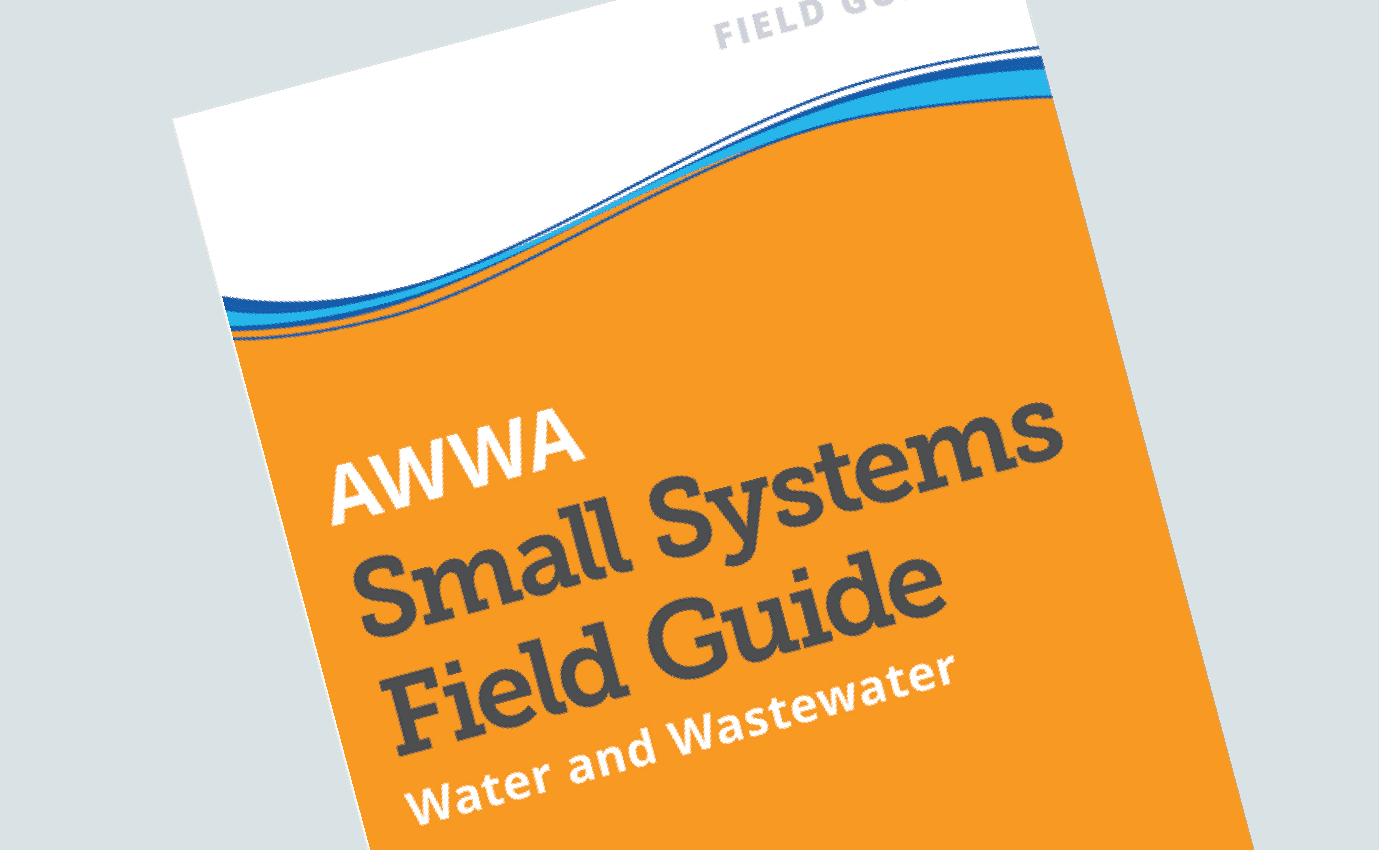
AWWA Small Systems Field Guide: Water and Wastewater
Operators of small water systems do it all — O&M, management, sampling, customer service, everything. This field guide may be the handiest book ever written for these unsung heroes of public health protection.
Read More
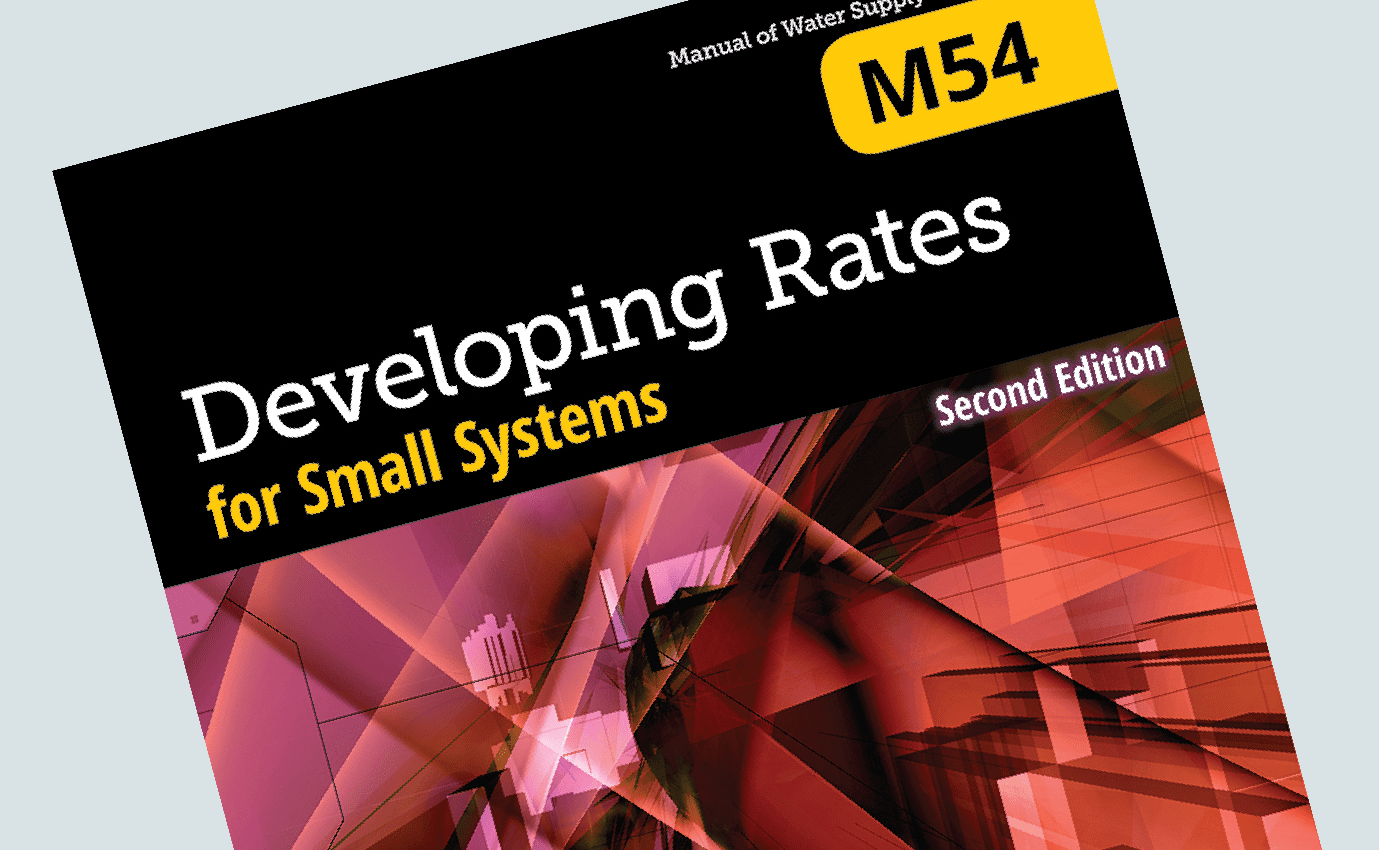
M54 Developing Rates for Small Systems
Limited data or resources don’t have to keep your small utility from developing a rate structure that recovers all your costs and is fair to your customers. This official manual of practice gives you the step-by-step guidance you need.
Read More
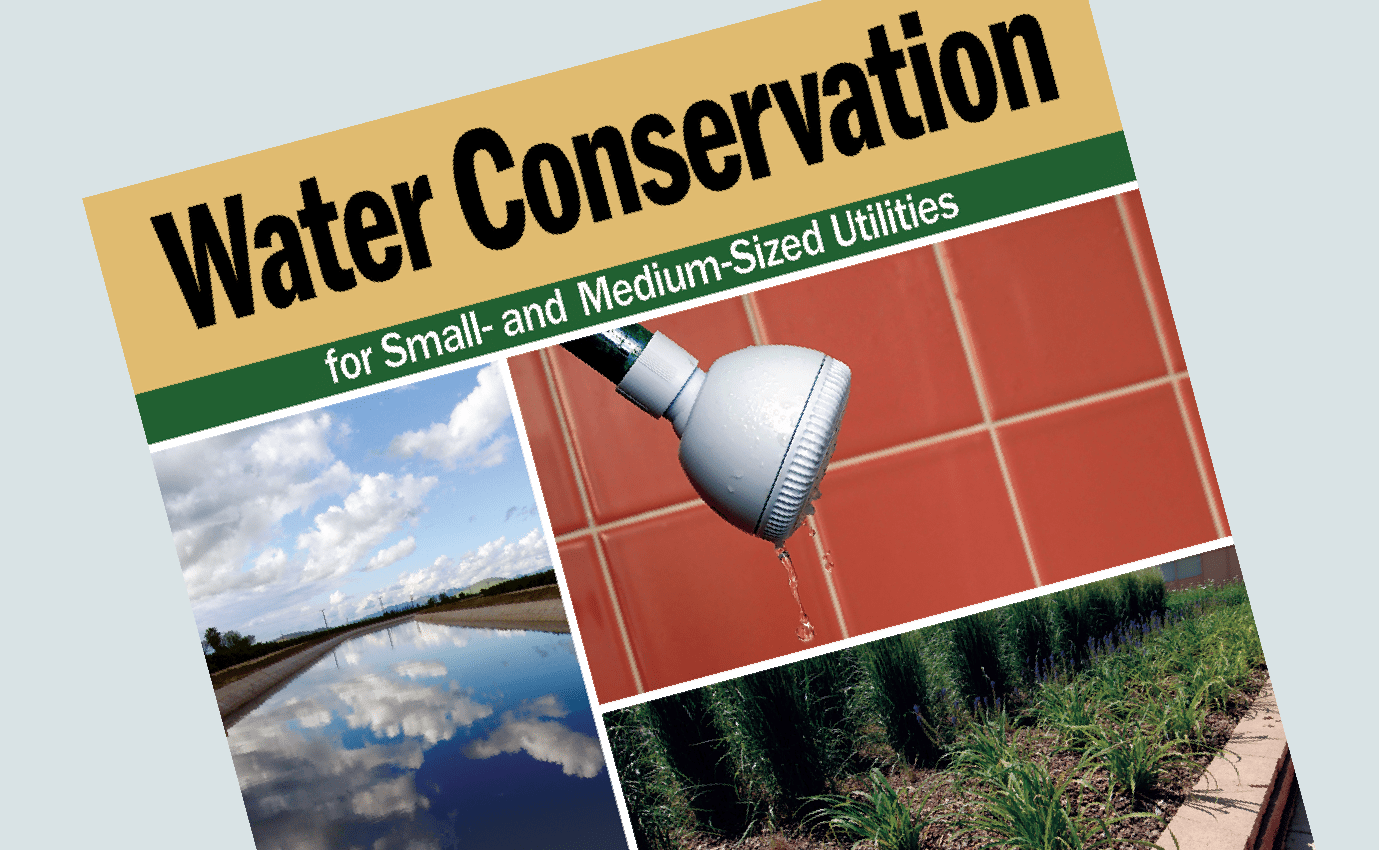
Water Conservation for Small- and Medium-Sized Utilities
Learn about sustainability with this practical guide to water conservation programs for small to medium-sized water utilities. Written for utilities serving fewer than 100,000 customers, this book provides practical advice and guidance for implementing a water conservation program.
Read More
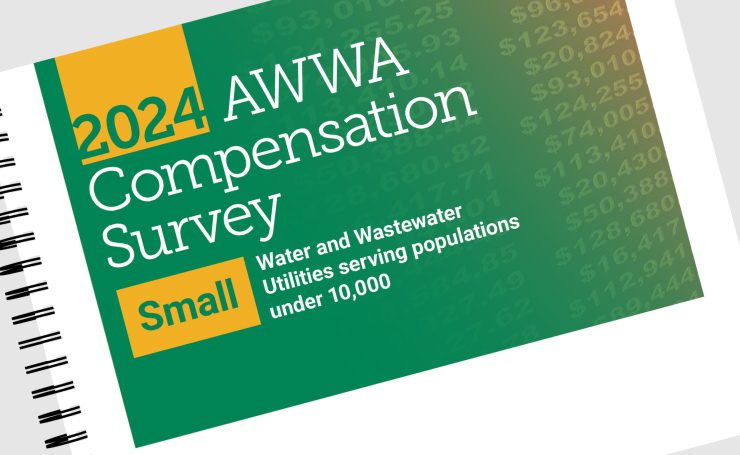
AWWA Compensation Survey for Small Water and Wastewater Utilities
The AWWA Compensation Survey for Small Water and Wastewater Utilities includes data and analyses of salaries, salary ranges, and compensation practices for water and combined water services utilities across North America. This edition covers utilities serving a population under 10,000.
Read More
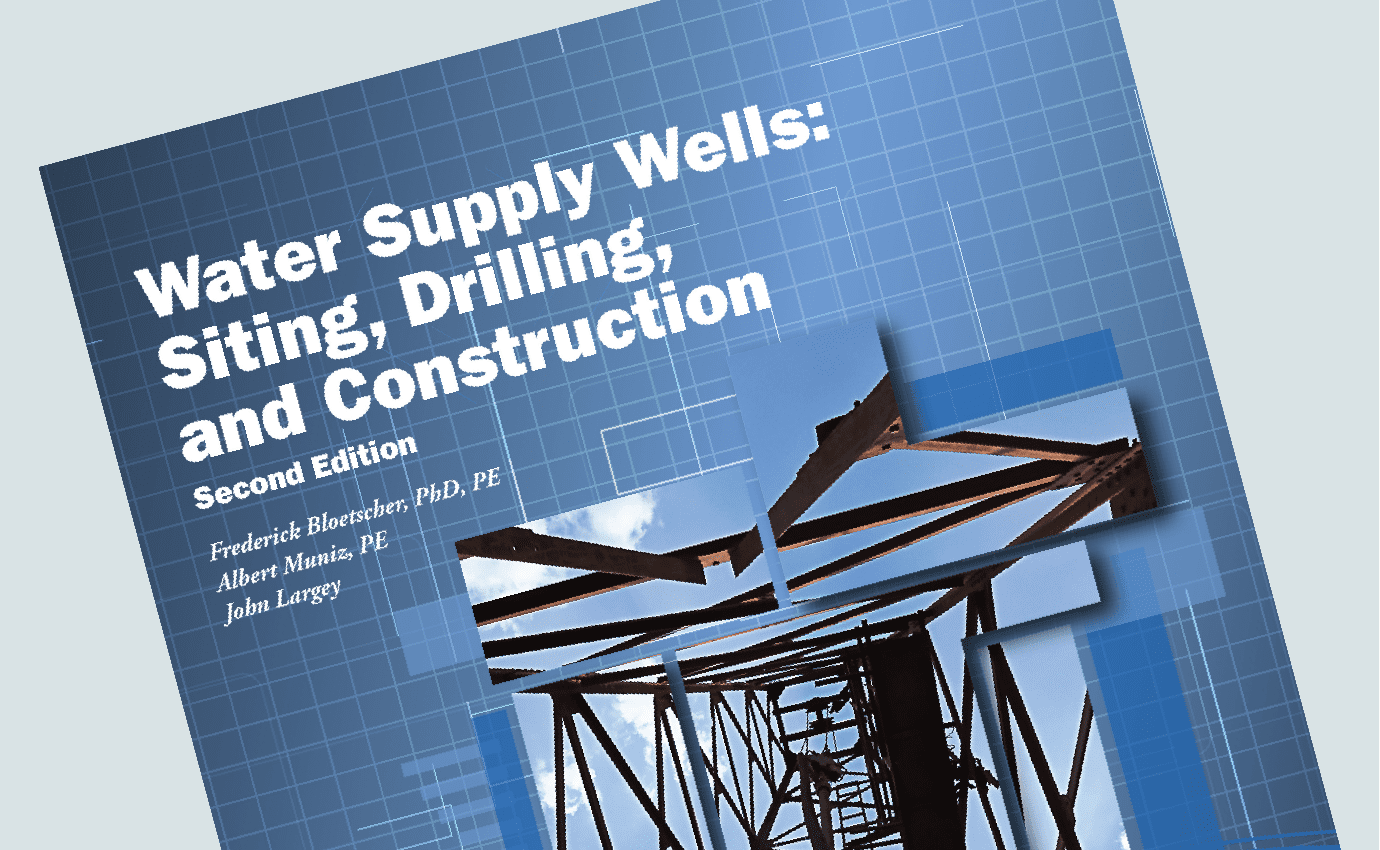
Water Supply Wells: Siting, Drilling, and Construction
AWWA’s top engineering reference for municipal water suppliers on locating, drilling, constructing, operating, and maintaining drinking water wells. This book is intended for utilities and engineers who periodically design and construct water supply wells.
Read More
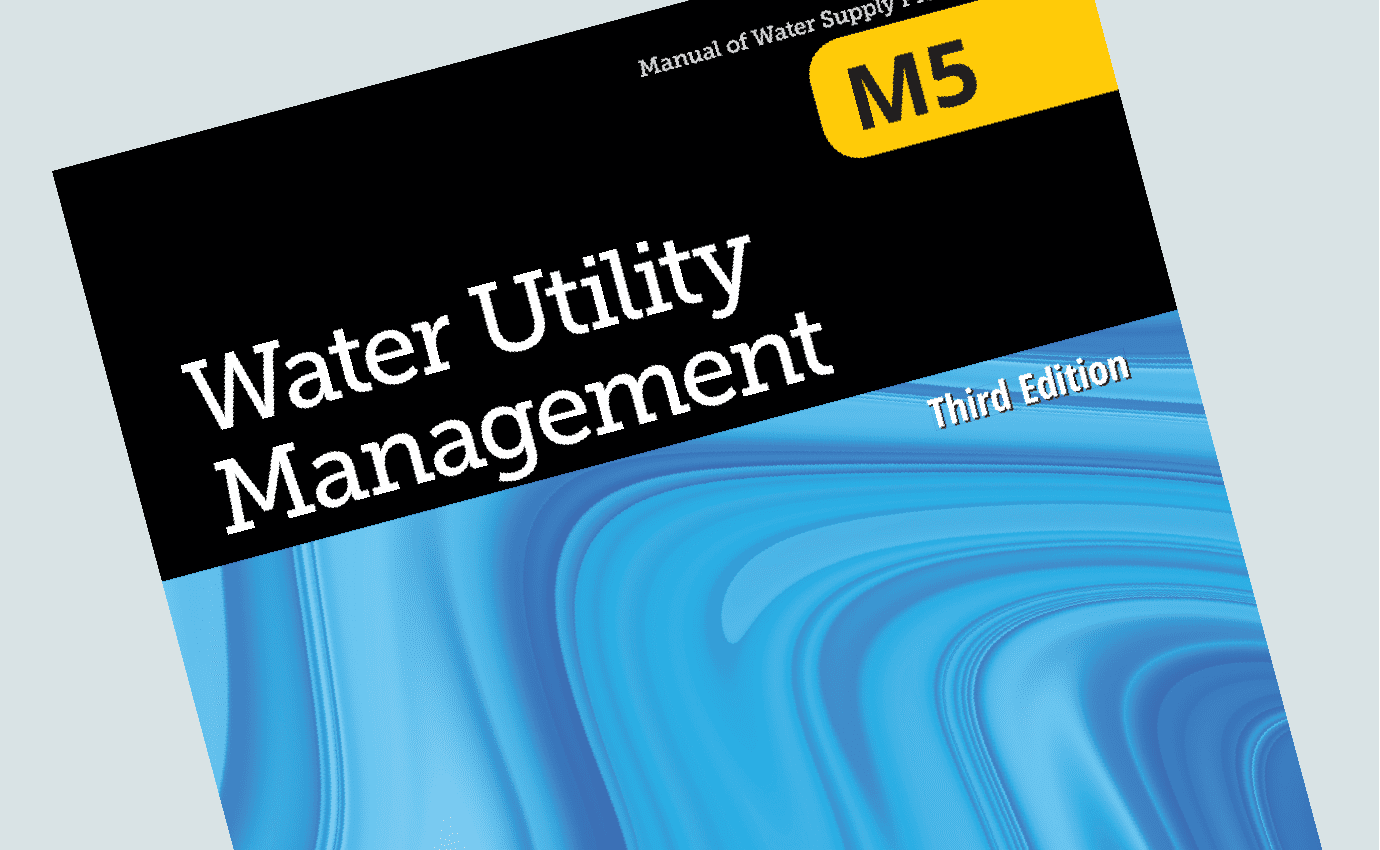
M5 Water Utility Management
M5 Water Utility Management is designed for both new and experienced managers who are looking to better understand all aspects of public utility management.
Read More
Small Systems eLearning Courses
AWWA offers a suite of eLearning courses available free of charge to small water system professionals. Reduce uncertainty and learn how to develop practical plans, from the convenience of your computer and at your own pace.
Small systems are defined as having fewer than 10,000 customers. If you do not work for a small system, please instead visit awwa.org/eLearning to view our full catalog of paid courses.
Small utility employees: we invite you to explore the topics below and register for the courses individually. AWWA eLearning is here to support you!
AWIA
America’s Water Infrastructure Act (AWIA) of 2018 served as a catalyst for utilities to evaluate their resilience to risk and to create emergency plans for responding to all hazards. Community water systems serving more than 3,300 persons are required to actively update these risk and resilience assessment (RRA) and emergency response plans (ERP) every five years.
The AWIA courses below will show you how.
Introduction to Resiliency and America’s Water Infrastructure ACT of 2018 EL272
As the introductory course in the Small Systems Resiliency Certificate Program, this course introduces the requirements for water utilities established by America’s Water Infrastructure Act of 2018 (AWIA) and defines how the certificate program can help small systems to meet those requirements.
Learn More
Operational Measures for Resiliency EL273
The second course in the Small Systems Resiliency Certificate Program, course content covers each aspect of security, field assessments of critical assets, and operational resiliency.
Learn More
How to Develop a Risk and Resilience Assessment EL274
In this third course in the Small Systems Resiliency Certificate Program, small systems are guided through developing a Risk and Resiliency Assessment with a worksheet designed for small utilities.
Learn More
How to Develop a Small System Emergency Response Plan – EL275
As the fourth course in the Small Systems Resiliency Certificate Program, the course guides small systems through developing an Emergency Response Plan (ERP) with the EPA ERP template.
Learn More
Cybersecurity for Small Water Systems EL276
Explore small system cybersecurity best practices for critical infrastructure, and learn how AWWA’s water sector cybersecurity risk management guidance and tool can help small utilities.
Learn More
Contaminants of Concern
Contaminants of Concern for Small Systems – PFAS EL284
Understanding the science of highly fluorinated chemicals (PFAS), including the formation and transformation in the environment, is an important step toward remediation and prevention.
Learn More
Contaminant Of Concern for Small Systems – Nitrates EL300
Drinking water systems face a growing challenge from elevated levels of nitrate in source water. Learn steps you can take to evaluate treatment.
Learn More
Contaminant Of Concern for Small Systems – Manganese EL301
This course will discuss background, health effects and formation of manganese, their presence in drinking water and EPA health advisories for these contaminants of concern.
Learn More
Advertisement
Distribution Systems
Predicting Contaminant Removal in Activated Carbon Systems for Small Systems – EL279
Small Systems considering using a granular activated carbon system should take this course to learn more about adsorption fundamentals and models you can use to optimize performance.
Learn More
Stormwater Best Practices for Rural Communities EL282
EL282 will introduce small systems participants to Stormwater Management goals, practice, tools and challenges specific to rural communities.
Learn More
How Water Works – EL283
This beginner level course is intended for those seeking a brief introduction into how water works as it moves from the source to your tap. No certificate of completion is provided for EL283.
Learn More
Disinfection Byproducts for Small Systems EL299
This course covers the formation, regulatory requirements, health effects, and options to control disinfection byproducts resulting from the use of chlorine-based disinfectants, chloramination, and ozone disinfectants.
Learn More
Corrosion Control for the Management of Lead and Copper at Customer Taps EL302
EL302 focuses on the steps small systems must take to meet the existing Lead and Copper Rule (LCR) as well as the recent revisions to the LCR (LCRR).
Learn More
Introduction to EPANET and Example Applications – EL304
EPANET is a software application used throughout the world to model water distribution systems. This course, adapted from EPA training, provides a comprehensive overview of the use of the application, it’s tools, features and benefits.
Learn More
Regulatory
Maintaining and Achieving RTCR Compliance for Small Systems EL219
EL219 focuses on 4 major areas needed by small systems to maintain and achieve compliance with the Revised Total Coliform Rule.
Learn More
Regulatory Review EL271
EL271 covers drinking water regulations and equips operators to properly operate and maintain water treatment facilities and distribution systems, thereby protecting public health.
Learn More
Utility Management
Financial Sustainability for Small Systems – EL226
This eLearning course focuses on 3 major areas needed by small systems to achieve financial sustainability, including understanding enterprise funds and their revenues, and an overview of what is needed to protect public health through safe water.
Learn More
Setting the Right Rates for Your Water System – EL251
This eLearning course consists of three modules to help small water systems set the right rates for their small communities.
Learn More
Optimizing Performance and Accessing Funding to Improve Small Systems – EL280
Small Systems participants will learn how to complete a system-wide self-assessment of five core areas of everyday operations, and learn how to contact/connect with USDA to get improvement funding.
Learn More
Water Loss
Water Supply Operations and Non-Revenue Water EL290
This course introduces the topic of Non-revenue Water in small systems.
Learn More
The AWWA Standard Water Audit and Free Software Tools EL291
Small Systems will learn how to track the water that they manage using the Water Balance diagram, and how to place data in the AWWA Free Water Audit Software to compile the annual water audit.
Learn More
How to Track Your Progress at Controlling Non-revenue Water for Small Water Utilities EL292
Small Systems will explore the Non-revenue Water performance indicators calculated by the AWWA Free Water Audit Software.
Learn More
Accurate Metering of Water Production Flows EL293
Small Systems will learn that accurate metering of production flows is highly important, in terms of managing water supplies, but also in providing accurate data to the annual water audit.
Learn More
Effective Leakage and Pressure Management to Contain System Leakage EL294
Small System participants will learn about the harmful impacts of leakage on system operations and the excessive costs it creates.
Learn More
Customer Metering and Billing Operations for Optimized Revenue Capture EL295
Small System participants will review the necessity of accurate customer metering, meter reading, and billing operations to ensure a reliable revenue stream.
Learn More
Keeping an Effective Water Loss Control Program Going EL296
Small Systems will learn the ways to launch and keep their Non-revenue Water management program going for the long haul.
Learn More
Advertisement


